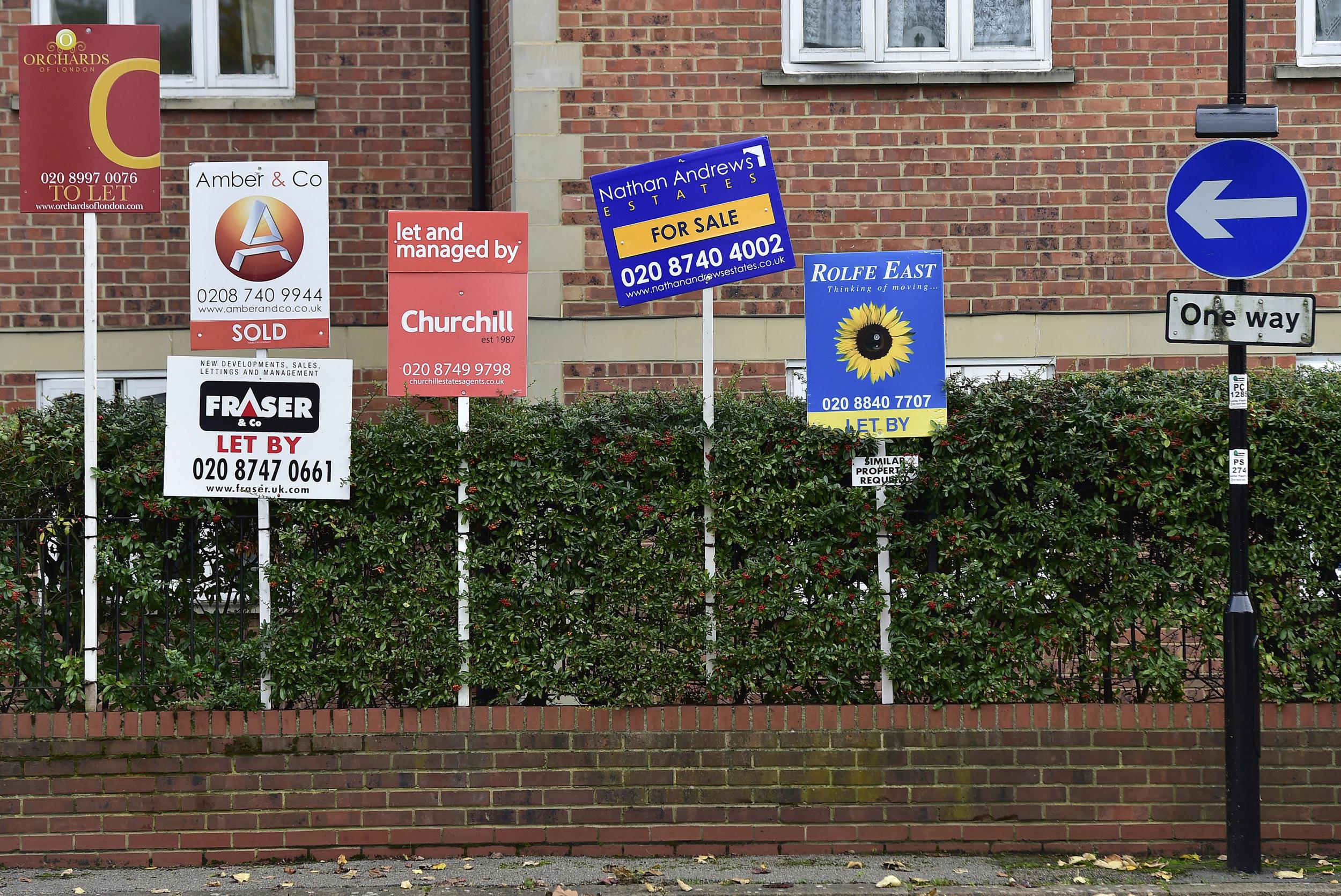UK house price growth drops to five-year low as London remains worst-performing region
Nationwide economist warned there are 'few signs of imminent change'

House price growth fell to a five-year low this month, according to the latest figures from Nationwide.
According to the lender’s most recent house price index, annual growth fell to 2 per cent in June, down from 2.4 per cent in May.
London was once again the region reporting the weakest growth, with prices falling 1.9 per cent year-on-year, while all other areas of the UK saw prices rising.
The East Midlands was the fastest growing, up 4.4 per cent on an annual basis to an average of £181,549 in the second quarter, followed by the West Midlands, which rose 4.3 per cent to an average £188,516.
Nationwide’s chief economist Robert Gardner said annual house price growth has stayed within a “fairly narrow range” of 2-3 per cent in the last year, which indicates there has been little change in the balance between demand and supply in the property market over that time.
“There are few signs of an imminent change. Surveyors continue to report subdued levels of new buyer enquiries, while the supply of properties on the market remains more of a trickle than a torrent,” he added.
“Looking further ahead, much will depend on how broader economic conditions evolve, especially in the labour market, but also with respect to interest rates. “Subdued economic activity and ongoing pressure on household budgets is likely to continue to exert a modest drag on housing market activity and house price growth this year, though borrowing costs are likely to remain low.”
Nationwide is expecting house prices to rise by around 1 per cent in 2018.
Samuel Tombs, chief UK economist at Pantheon Macroeconomics, said the new figures were “another milestone in the housing market’s slowdown”.
“Slowing growth in prices largely reflects the impact of recent increases in mortgage rates on affordability,” he added.
“Tight supply, a healthy labour market and a continued lengthening of mortgage terms - 30 year loans now are common - will help to prevent prices from falling outright. But it is inevitable that house prices will grow at a slower rate than households’ incomes during a period of rising mortgage rates.”
Mr Tombs said the Bank of England is expected to bring some relief to the market with a hike in interest rates in August, but noted that “it is a close call” - previously, the market was expecting a hike in May which was abandoned following a series of disappointing data releases. As a result, Pantheon predicts prices to rise 1.5 per cent in 2018, and 2 per cent in 2019.
Subscribe to Independent Premium to bookmark this article
Want to bookmark your favourite articles and stories to read or reference later? Start your Independent Premium subscription today.

Join our commenting forum
Join thought-provoking conversations, follow other Independent readers and see their replies